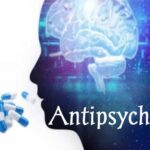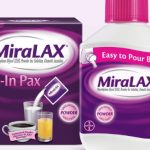Is It Safe To Go Past The Maximum Dose On Antipsychotics?

Antipsychotics, also known as neuroleptics, are a class of medications primarily used to treat psychiatric disorders characterized by symptoms such as psychosis, hallucinations, delusions, and disordered thinking. They are commonly prescribed for conditions like schizophrenia, bipolar disorder, and severe depression with psychotic features.
Antipsychotics work by modulating the levels of certain neurotransmitters in the brain, particularly dopamine, serotonin, and sometimes others like norepinephrine. These medications help reduce the intensity and frequency of psychotic symptoms, improve overall functioning, and enhance the individual’s quality of life.
There are two main categories of antipsychotics: typical (first-generation) antipsychotics and atypical (second-generation) antipsychotics.
Typical antipsychotics, such as chlorpromazine and haloperidol, were the first medications developed in this class. They primarily target dopamine receptors in the brain and effectively reduce positive symptoms (e.g., hallucinations, delusions) associated with psychotic disorders. However, they are also associated with a higher risk of extrapyramidal symptoms (EPS) like parkinsonism, dystonia, and tardive dyskinesia.
Atypical antipsychotics, such as risperidone, olanzapine, and quetiapine, have a broader receptor profile, affecting dopamine, serotonin, and other neurotransmitter systems. They are generally considered to have a lower risk of EPS compared to typical antipsychotics. Atypical antipsychotics also show efficacy in treating both positive and negative symptoms of schizophrenia, and they may be used in other psychiatric conditions as well.
It’s important to note that antipsychotics should be prescribed and monitored by a healthcare professional, as their use may be associated with various side effects, including weight gain, metabolic changes, sedation, movement disorders, and cardiovascular effects. The choice of antipsychotic and dosage depends on the individual’s specific symptoms, medical history, and response to the medication.
Antipsychotics can be an essential component of a comprehensive treatment plan for individuals with psychiatric disorders, often used in combination with other interventions such as psychotherapy and social support. Regular follow-up with a healthcare provider is crucial to monitor the effectiveness and manage any potential side effects of these medications.
Is It Safe To Go Past The Max Dose On Antipsychotics?
No, it is not safe to exceed the maximum recommended dose of antipsychotic medications without the guidance and supervision of a healthcare professional. The maximum dose is determined based on factors such as the individual’s condition, response to the medication, and overall health.
Taking a higher dose of antipsychotics than prescribed can increase the risk of side effects, some of which can be serious or potentially life-threatening. These side effects may include severe sedation, motor abnormalities, cardiovascular effects, metabolic disturbances, and neurological complications.
It’s important to follow the prescribed dosage and consult with a healthcare professional if you have concerns about the effectiveness of your current medication or if you’re experiencing significant side effects. They can assess your condition, make appropriate adjustments to your treatment plan, or consider alternative medications, if necessary.
Never make changes to your medication regimen or exceed the prescribed dose without proper medical guidance. Your healthcare provider is the best resource to help you manage your medication and ensure your safety and well-being.
How To Make Antipsychotic Medication More Effective
To make antipsychotic medication more effective, it’s important to follow these guidelines:
1. Take Medication as Prescribed: Adhere to your prescribed medication regimen and take the medication exactly as instructed by your healthcare provider. Do not skip doses or make changes without consulting them first.
2. Open Communication: Maintain open and honest communication with your healthcare provider. Share any concerns, side effects, or changes in symptoms you experience. They can adjust the dosage or explore alternative medications if necessary.
3. Be Patient: Antipsychotic medications may take time to show their full effect. It’s important to be patient and allow sufficient time for the medication to work. Some improvements may be noticed within a few weeks, but it can take several weeks or even months to achieve the maximum benefit.
4. Complementary Therapies: Consider incorporating complementary therapies alongside medication. Psychotherapy, such as cognitive-behavioral therapy (CBT), can help address symptoms, improve coping strategies, and enhance overall treatment outcomes.
5. Healthy Lifestyle: Maintain a healthy lifestyle that includes regular exercise, balanced nutrition, sufficient sleep, and stress management. These factors can positively impact treatment outcomes and overall well-being.
6. Avoid Substance Use: Minimize or eliminate the use of alcohol and recreational drugs, as they can interfere with the effectiveness of antipsychotic medication.
7. Support Network: Seek support from family, friends, or support groups who understand and can provide encouragement throughout your treatment journey.
8. Regular Follow-up: Attend regular follow-up appointments with your healthcare provider to monitor your progress, discuss any concerns, and make necessary adjustments to your treatment plan.
Remember, each person’s response to antipsychotic medication can vary, and finding the most effective medication and dosage may involve some trial and error. Working closely with your healthcare provider and maintaining good communication is crucial in optimizing the effectiveness of your antipsychotic medication.





